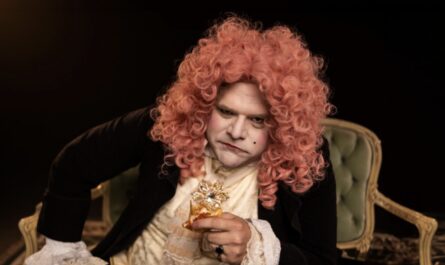Jim Jefferies is at a career and life crossroads. Aren’t we all in 2020?
For Jefferies, though, his personal and professional lives were colliding with his younger rebellious brand when he filmed his newest special, Intolerant, for Netflix. He had just wrapped his weekly Comedy Central talk show, The Jim Jefferies Show, with sights set on a broadcast network sitcom on NBC (that deal is still potentially a go for 2021). He’s trying to go even more legit than he did fictionally on his FX series, Legit, and has a son now old enough for both father and son to realize he can’t be quite the rebel he used to be onstage or at home.
Intolerant addresses these issues, sometimes in subtle ways. Like this bit, about skin care.
But the title also references both his lactose intolerance as well as society’s tolerance (or intolerance) for certain points of view.
As I wrote for Decider:
Like many comedians from Generation X or the Baby Boom, Jefferies has a bone to pick with Millennials. But after reminding his younger viewers that every new generation is more progressive than the previous one, he doesn’t blame them for overwhelming us with their opinions; rather, he blames social media for existing and giving young people the notion that they need to share every thought and selfie with everyone else, thinking the rest of us are better off for it.
What he doesn’t quite say, but almost does and perhaps should have, is that comedians of all ages practice these same habits, only they get paid for the exercise and laud themselves for it (as do critics, obviously, full stop).
Jefferies holds a valid argument that old jokes often don’t hold up to current scrutiny precisely because society progresses, and as it moves forward, so too does the line on propriety. “When I told the joke, the line was here, and it was socially acceptable, right? Now you moved the line back to here, so I won’t go there anymore, I won’t. But you can’t get angry because you moved the line and then the f—ing joke was over here.” He maintains that comedians tell the jokes they do only because they hope to earn our laughs. He doesn’t want to bomb, doesn’t want to intentionally fall out of our favor. But he also claims that comedians have a job “to take risks, to gamble, if you will. Now what happens if you gamble? You don’t always win!”
The bigger problem? Some comedians continue this risk-seeking behavior into all of their affairs (see the #MeToo movement and a renewed reckoning today), and even more problematic, that most a-holes believe themselves to be comedians. That’s why comedy should be left to the professionals, and why critics must exist to keep them honest about their business.



